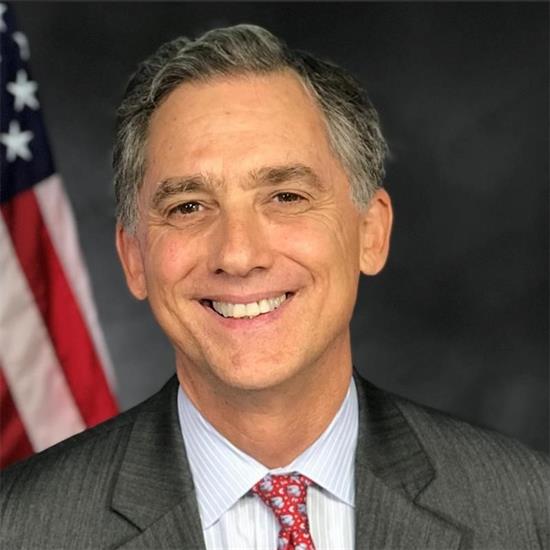America's Russian Aggression Problem
Washington,
January 10, 2022
America's Russian Aggression Problem
by Rep. French Hill Washington Times January 10, 2022 America's Russian Aggression Problem A decade ago, the future of Ukraine seemed clear. A post-Soviet country, it was poised to follow its neighbors’ post-Cold War path of new democratic principles and shared values of its Western neighbors. This changed in the wake of the Maiden protests of 2013 and 2014. Russia annexed Crimea, and pro-Russian separatist groups capitalized on the moment, declaring independence for the so-called Donetsk and Luhansk People’s Republics in the Donbas region of eastern Ukraine on the border with Russia. Despite numerous requests for assistance immediately following these events, the Obama administration did not provide critical defensive weapons to the government of Ukraine. Instead, former President Barack Obama pitifully offered blankets and Meals Ready-to-Eat to those on the frontline. More destructively, Mr. Obama used this opportunity to channel his inner-Neville Chamberlain, the serving up the Crimea to the Russian Bear on a silver platter being the most obvious example. As with Chamberlain’s historic mistake of offering up the Sudetenland to Hitler, the result has been the same: The unappeased beast remains hungry for more territory and treasure. Armed unrest remains a constant in the region, with the Russian military and pro-Russian militias undermining peace and security in Europe and the very institutional and territorial integrity of Ukraine. Fortunately for Ukraine, former President Donald Trump stood up to the Russian aggressor, and the U.S. Congress took steps to equip Ukraine to protect its homeland. I stand with the Ukrainian people who seek their own future and will exercise their right to defend their territorial integrity and the right of self-determination. Whatever Russian President Vladimir Putin may say, Ukrainians do not long to return to vassal state status under the boot of Russia. Ukraine is a partner legislature with the House Democracy Partnership, co-chaired by my colleagues Rep. David Price, North Carolina Democrat, and Vern Buchanan, Florida Republican. In November, I participated in a House Democracy Partnership exchange with members of the Ukrainian Verkhovna Rada. Their message was clear: They want to be rid of Russia’s malign influence and want to continue to have the same self-determination and freedom that Americans enjoy every day. In recent weeks, Mr. Putin has escalated his aggression toward Ukraine, moving large numbers of troops and military equipment into strategic positions along their shared border. While he claims he is acting in Russia’s own self-defense, this is contrary to the facts on the ground. Russia is the aggressor here — not Ukraine, not NATO and not the United States. It is time that all parties of the international community recognize this. Russia claims it wants to be a respected member of the international community. But their actions delivering ultimatums and making threats to their peers and neighbors — suggest otherwise. President Biden suggests that if Russia crosses the border into Ukraine, “severe” sanctions will follow. In my view, that won’t cut it. Bullies only respect united, firm strength, period. I call on Mr. Biden to demonstrate solidarity with the people of Ukraine by taking these three steps: (1) immediately delivering to Ukraine the promised military assistance authorized by Congress in the recently signed annual national defense spending bill; (2) outlining publicly our firm stance on the territorial integrity of Ukraine with our European partners; and (3) committing to joining NATO partners in an expansion of air support to bases in Romania. The military force Mr. Putin has amassed on the border is disproportionate to his statements and demands. It is enormous, aggressive and provocative. It is for invading, not maintaining peace and security. I invite European and American leaders to discuss with the Russians appropriate mutual parameters regarding European defense concerns — but only after Russian withdrawal and not a moment before. |


